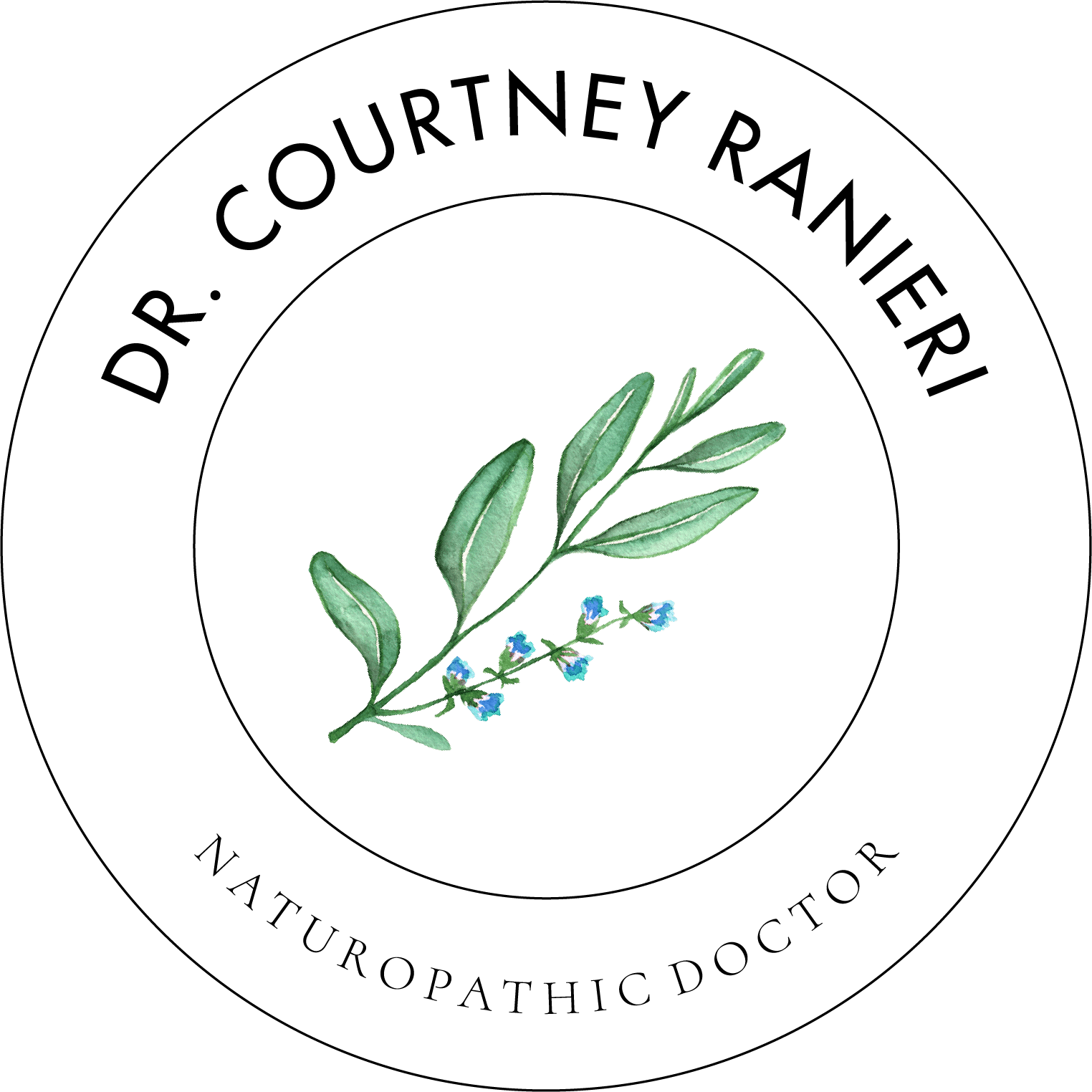Getting Pregnant: The Top 7 Reasons for Infertility + How Naturopathic Treatment Can Help
Whether you, your partner, a family member or friend has experienced infertility, know you’re not alone:
1 in 6 Canadian couples experience infertility.
Infertility is defined as the inability to achieve a sustained pregnancy in:
- 1 year of trying if you’re under age 35 or
- 6 months of trying if you’re over age 35.
Fertility challenges can take an emotional, physical and even financial toll on individuals and couples.
If you’re struggling to conceive, read on for the Top 7 Reasons For Infertility:
1. You may not be ovulating
- Every woman should be thinking about ovulation if trying to conceive.
- To get pregnant, you must ovulate. That means that one of your ovaries must grow and release an egg every month. This should happen at the mid-point of your cycle (usually between Day 12-16).
- Women with PCOS, hypothyroidism, too low or high body weight/fat, older age and premature ovarian failure are at an increased risk of not ovulating. One key sign is irregular or absent periods, however even if you have regular periods you may not be ovulating.
- How do you know if you’re ovulating? Your Naturopathic Doctor can help you determine if you are and provide you with a good understanding of your egg quality. Check out this post for more info.
2. Sperm quality and quantity might not be optimal
- Greater than 30% of infertility is due to male factors.
- There needs to be optimal sperm count, mobility (ability to move to meet an egg) and quality (ie shape) for a healthy pregnancy to take place.
- Age, overall health, diet and medications can affect sperm quality and quantity.
- If you or your partner hasn’t had their sperm tested, a Naturopathic Doctor can send you for that testing. The good news is there’s a lot we can do to help improve sperm health. Check out this post for more info.
3. You’re not eating the right diet (or are drinking too much coffee or wine!)
- In both men and women diet has an impact on fertility.
- A lack of important nutrients like vitamin B12, folic acid, iron, and zinc can all impact fertility.
- Women and men who have a diet high in fresh vegetables, healthy fats (think salmon, avocado, olive oil, nuts and seeds), lean proteins (fish, chicken, turkey), and whole grains experience higher rates of conception.
- Moderate consumption of alcohol in women (more than 2 drinks/day or 7 drinks/week) has been shown to increases the time taken to conceive. Studies have shown that women who avoid alcohol while trying to become pregnant had in increased rate of pregnancy.
- Higher intake of coffee and caffeine can decrease the odds of becoming pregnant and increase the chances of early pregnancy loss.
- I work together all my fertility patients put in place a fertility-optimizing diet plan.
4. You may not be having intercourse at the right time
- To conceive, sexual intercourse has to happen during your fertile window – when there is an egg available to be fertilized.
- A healthy egg lives for up to 48 hours after you ovulate, and sperm lives for 72 hours. This small window provides the opportunity to conceive.
- Understanding your cycle, knowing exactly what day of your cycle you ovulate (+ if you are, see above), is extremely important to time intercourse for successful conception.
- A lot of times, I see couples trying at the wrong time of month and determine their fertile window is the key to help them conceive.
- Working with a fertility practitioner can help you determine when (+ if) you’re ovulating and help improve your timing for conception.
5. You have an underlying hormonal condition (or hormone levels are not optimal)
- Many conditions that impact fertility do so by negatively influencing hormone levels.
- Thyroid conditions, high cortisol levels or low progesterone all influence fertility.
- Optimizing progesterone helps to improve chances of maintaining a healthy pregnancy.
- We can test hormone levels though comprehensive hormone testing, which I suggest for all fertility patients who are experiencing infertility so we can get a clear picture of their hormonal health.
6. Your uterine lining may not be thick enough
- When a sperm meets an egg in the fallopian tubes, it becomes an embryo and travels down to the uterus to implant into the lining to grow.
- The lining has to be thick enough as it contains blood vessels to bring nutrients to the growing embryo.
- In some women, their uterine lining may not be thick enough. This is usually picked up on an ultrasound of the uterus during the first 1/2 of the cycle.
7. Stress, environmental exposures and smoking are playing a role
- Stress impacts fertility by affecting ovulation in women and sperm quality in men.
- Some environmental exposures like pesticides, herbicides, lead and chemicals have been linked to fertility problems in both men and women.
- Smoking increases your risk of miscarriage and ectopic pregnancy and is thought to age your ovaries prematurely.
How I Can Help:
I provide Fertility Support to help patients through pre-conception care, pregnancy and beyond. By looking at fertility through a holistic lens, we work towards a comprehensive plan that takes into account all aspects of health and its effect on fertility. I have advanced training in fertility support and offer pre + post IVF acupuncture.
- An Individualized Treatment Plan to help:
- Address underlying concerns (e.g. PCOS, endometriosis, fibroids, thyroid)⠀
- Help you determine if and when you’re ovulating to understand your fertile window
- Improve egg quality and uterine lining health⠀
- Improve sperm health⠀
- Optimize nutrition and pre-conception diet
- Balance hormones
- Regulate menstrual cycles
- Manage stress and lifestyle⠀
- Support integrative fertility methods (IVF, IUI etc)⠀
- Preconception Check-Up
- At our first visit we’ll talk about your goals, reproductive + health history, cycles, complete pre-conception blood tests, physical exams and talk about other conditions that may be making it difficult to conceive like PCOS, thyroid conditions, obesity, autoimmune conditions, endometriosis, diabetes + more.
- Comprehensive Lab Testing
- In order to ovulate, conceive and maintain a pregnancy, we must have optimal levels of hormones. I run comprehensive lab testing if necessary to help us understand your health better and guide treatments to improve fertility. This can include Estrogen (Estradiol), LH: FSH ratio, Progesterone, Insulin and/or HbA1C, TSH (and T3, T4, anti-TPO), Anti-Mullerian Hormone (AMH).
- Pelvic Floor Therapy
- Pre-and-post natal concerns including labor and delivery preparation, pain, leakage, tearing or episiotomy support. Learn more here!
- Integrative Fertility Support
- I’m happy to offer integrative fertility support to help improve fertility alongside other conventional therapy such as IVF, IUI and cycle monitoring.
- Equal Access for All
- I am proud to provide LGBTQ2S friendly services in my practice and provide equal access for all individuals and couples looking to optimize their fertility.
If you are interested in optimizing your hormonal health, fertility + pregnancy support, I am a Naturopathic Doctor in Toronto, Mississauga and Vaughan. I have additional training in Integrative Fertility Methods and would love to help you reach your health goals.
In health,









